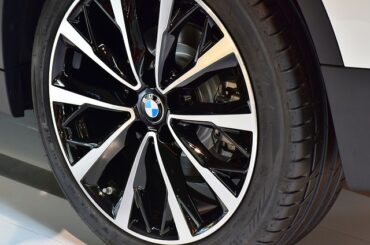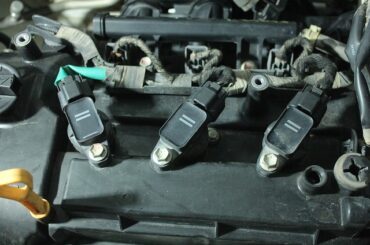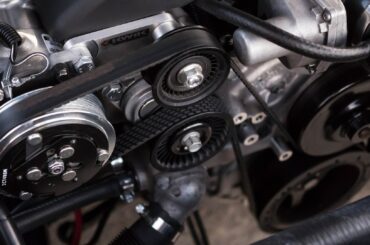When you’ve just invested in a brand-new set of tires for your vehicle, you expect a smooth and quiet ride. However, it’s not uncommon for new tires to throw a curveball by producing an unexpected and irritating humming noise. This unwelcome soundtrack can disrupt your driving experience and signal underlying issues that need attention.
This article will explore the perplexing phenomenon of new tires making a humming noise. We’ll uncover the common culprits behind this auditory annoyance and provide practical solutions to remedy the situation.
Question: new tires making humming noise?
Contents
Common Causes of Humming Noise in New Tires
While expected to provide a silent and comfortable driving experience, new tires can sometimes generate an unwelcome humming noise. Understanding the factors contributing to this issue is crucial to finding an effective solution. Here, we’ll explore the common causes of humming noise in new tires:

1. New Tires and Humming Noise:
Contrary to expectations, new tires can sometimes produce a humming noise, much to drivers’ frustration. This issue is often perplexing, especially when you’ve invested in quality tires. But fear not; it’s a problem that can be addressed.
2. Tread Design – The Influence on Noise Levels:
One of the major contributors to tire noise is the tread design. The pattern on your tires can significantly impact the noise they produce. Tires with aggressive, off-road treads generate more noise than those with a smoother, symmetrical tread pattern. Understanding the connection between tread design and noise levels is key to addressing the issue.
3. Tire Quality and Noise Production:
The quality of the tires you choose plays a pivotal role in the noise they produce. Cheaper or lower-quality tires may be more prone to generating noise due to differences in their construction and materials. Therefore, understanding how tire quality relates to noise can help you make informed decisions when purchasing tires.
4. Tire Wear and Maintenance – A Source of Noise:
Another critical aspect to consider is tire wear and maintenance. Improper alignment, balance issues, or uneven wear can all lead to tires emitting a humming noise. A lack of maintenance and neglect of these factors can exacerbate the problem. Recognizing the connection between tire condition and noise levels is essential for a quieter, smoother ride.
Solutions for Dealing with Humming Tires
Experiencing that unwelcome humming noise from your new tires doesn’t have to be a never-ending annoyance. There are effective solutions to address the issue and bring tranquility back to your drives. Let’s explore some ways to deal with humming tires:
1. Tire Maintenance – Alignment, Balance, and Inflation:
Proper tire maintenance is key to reducing or eliminating humming noise. Ensure your tires are correctly aligned, balanced, and inflated to the manufacturer’s recommended levels. Misalignment and imbalance can significantly contribute to noise, so regular maintenance is crucial.
2. Wheel Bearing Inspection:
If the humming noise originates from a specific area, not just the tires, it might be linked to wheel bearings. Worn-out or damaged wheel bearings can produce a distinctive hum. To address this, inspect the wheel bearings and replace them if necessary. This can significantly reduce noise levels and enhance safety.

3. Tire Replacement:
The noise issue may sometimes persist even after addressing alignment, balance, and maintenance. If your tires are excessively noisy due to tread design or quality, it may be time to consider replacement. Look for tires with quieter tread patterns and ensure they meet your vehicle’s specifications. Replacing noisy tires with quieter ones is a practical solution.
4. Professional Inspection:
If you’ve tried the above solutions and the humming noise remains, it’s wise to seek the expertise of a professional mechanic. They can thoroughly inspect your tires and the vehicle’s components to pinpoint the exact cause of the noise. Professionals have the tools and knowledge to identify and remedy the issue effectively.
5. Preventive Maintenance:
To prevent future occurrences of humming noise in new tires, maintain a regular tire maintenance schedule. Additionally, be mindful of the road surfaces you drive on and adapt your driving accordingly. Remember that new tires may produce more noise during their break-in period, but this noise decreases as they wear slightly.
Preventing Humming Noise in New Tires
Experiencing the vexing issue of new tires producing a humming noise is one thing, but preventing it from happening in the first place is an even more satisfying approach. Here are some preventive measures to ensure a quieter and smoother driving experience with your new tires:
1. Proper Tire Selection:
Begin by selecting the right tires for your vehicle. Opt for tires with a quieter tread pattern—research different tire brands and models to find those designed for reduced noise levels.
2. Maintenance Schedule:
Establish a regular tire maintenance schedule. This includes proper alignment, balancing, and tire inflation to manufacturer-recommended levels. Regular maintenance ensures safety and minimizes the risk of humming noise caused by wear or alignment issues.

3. Break-In Period Understanding:
Recognize that new tires may be noisier during their break-in period. As the tires wear slightly and settle into their tread patterns, the noise they produce typically diminishes. During this period, maintain a little patience and understanding, knowing that the noise will likely decrease over time.
4. Adapt to Road Surfaces:
Different road surfaces can impact tire noise levels. Be aware that rough or textured roads tend to amplify tire noise. When driving on such surfaces, consider adjusting your driving habits. Reducing speed and avoiding abrupt maneuvers can help minimize noise.
New tires making humming noise
In dealing with the issue of new tires producing a humming noise, your safety and driving comfort are at stake. By taking action through maintenance, inspections, and tire selection, you can ensure a quieter and safer driving experience. Don’t delay in addressing any tire-related issues, as the road to a smoother ride begins with your proactive approach.
Is the Toyota Highlander good for off-road? in 2023
When Someone Drilled a Hole in My Gas Tank






